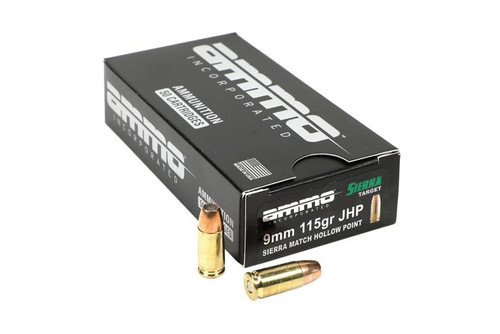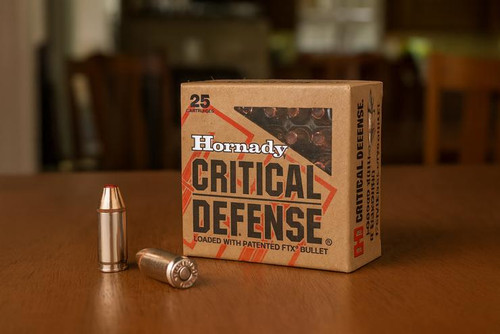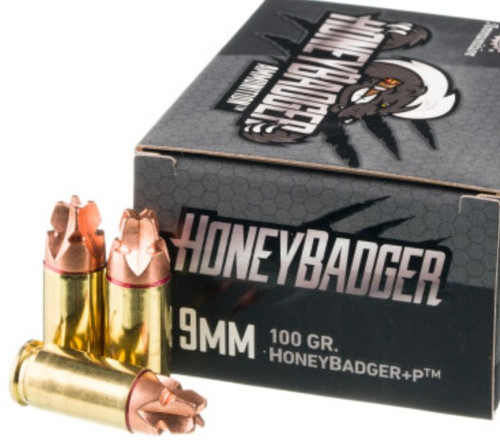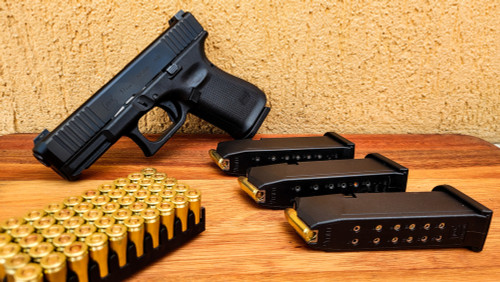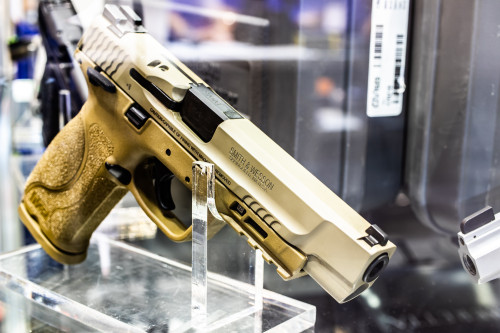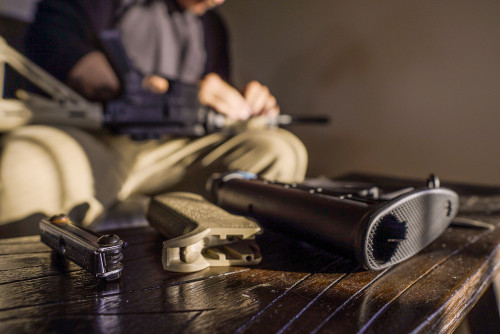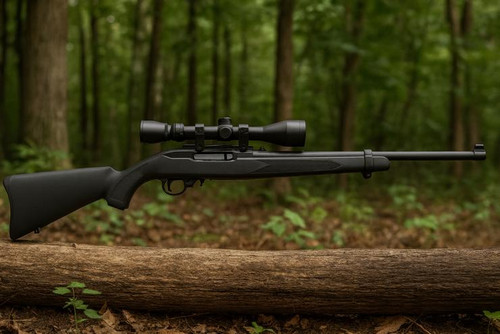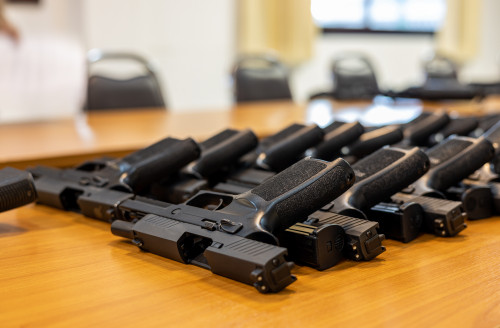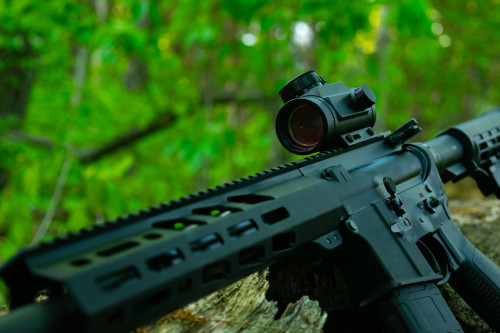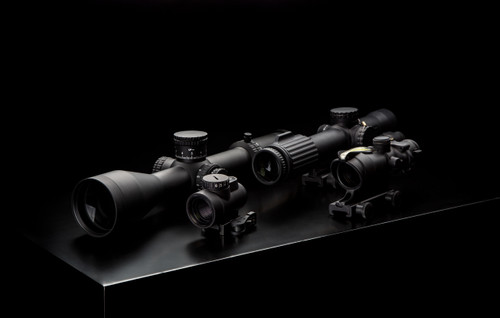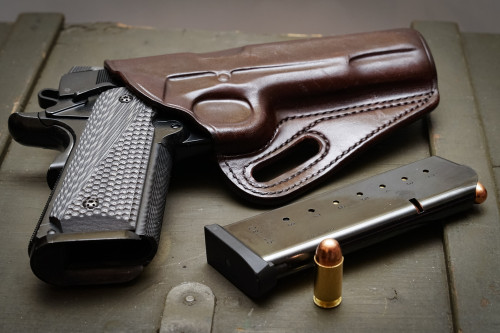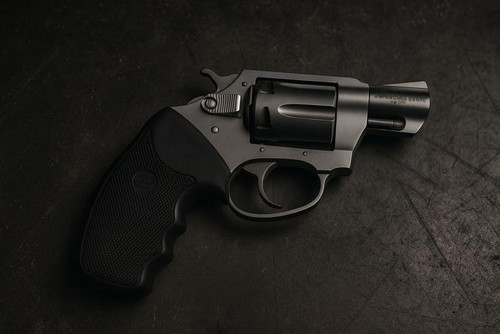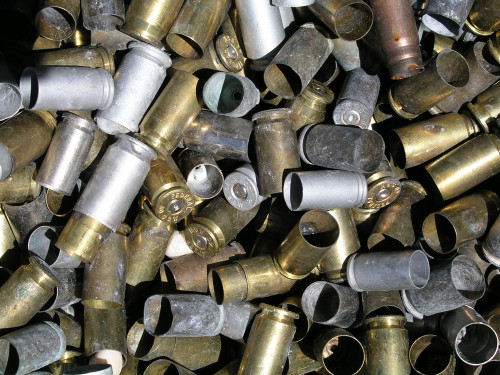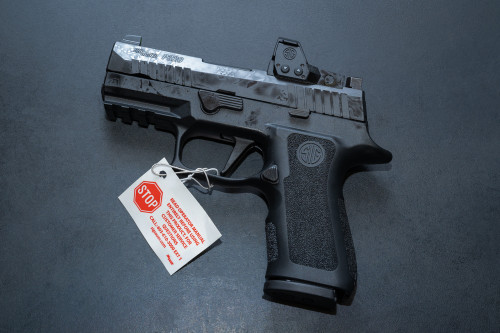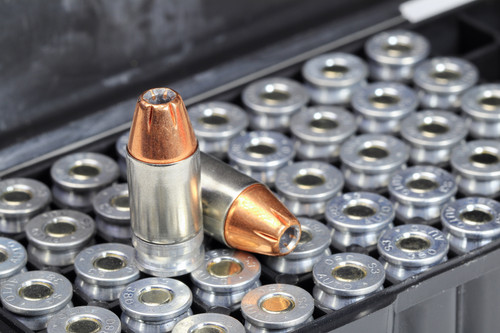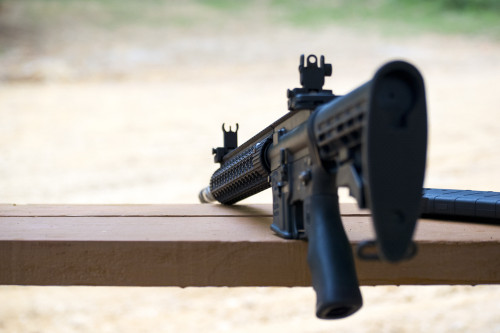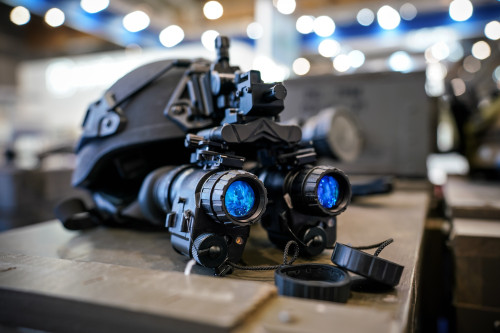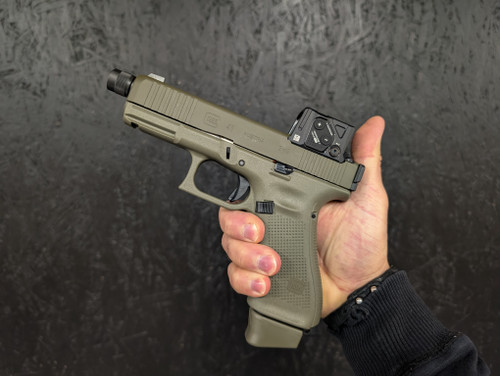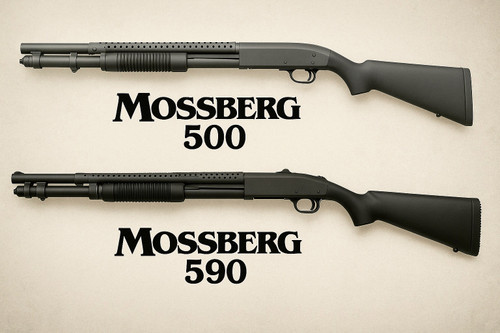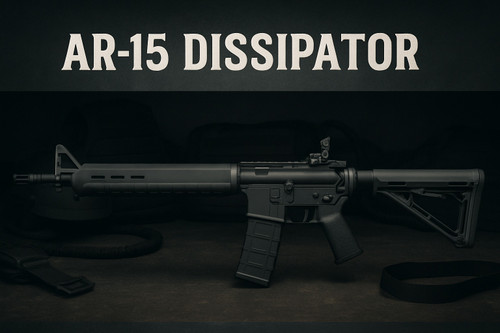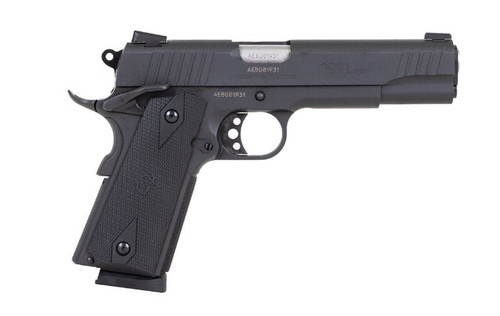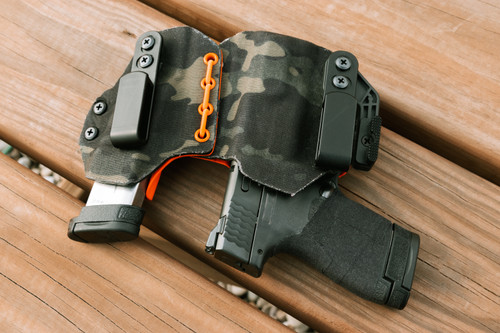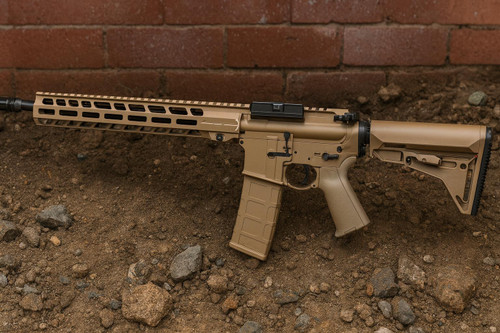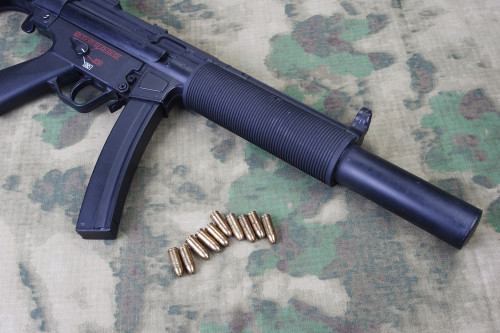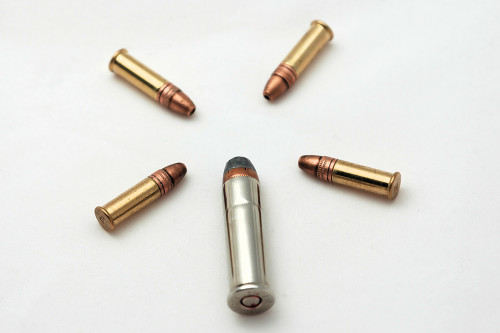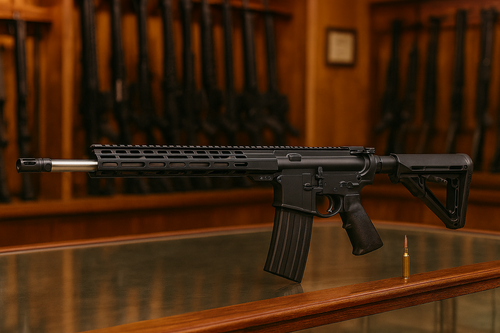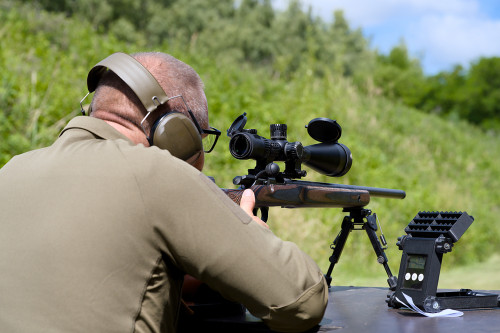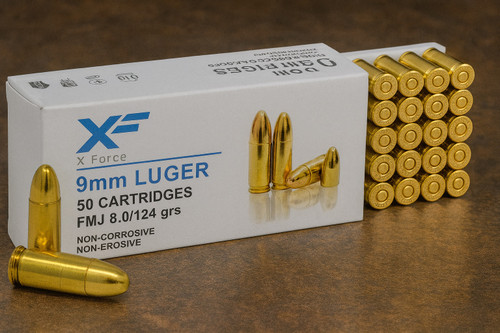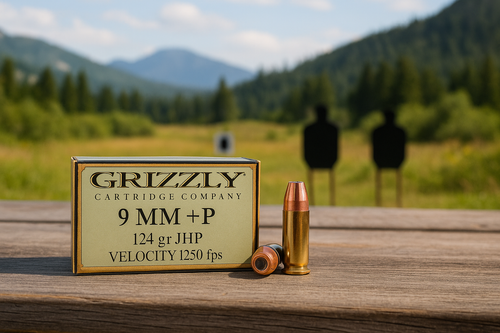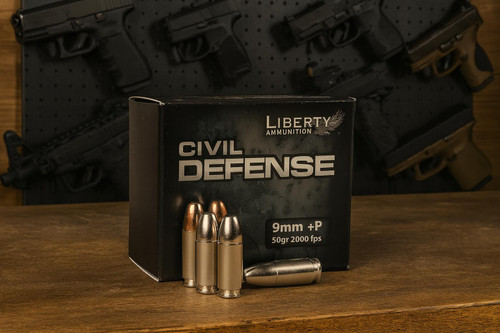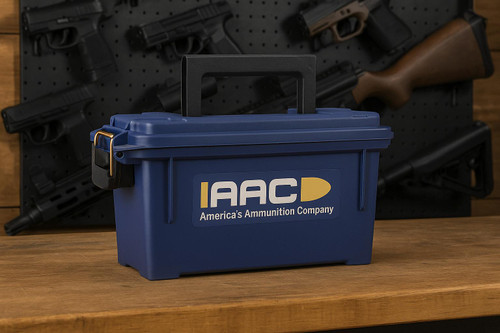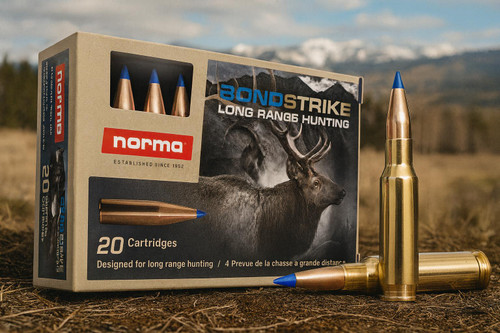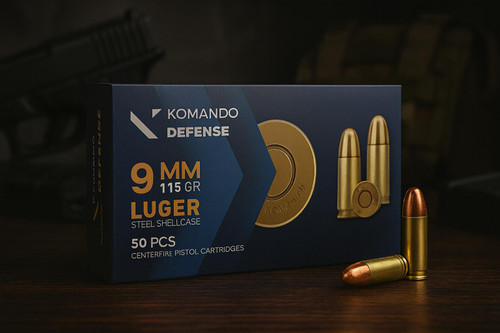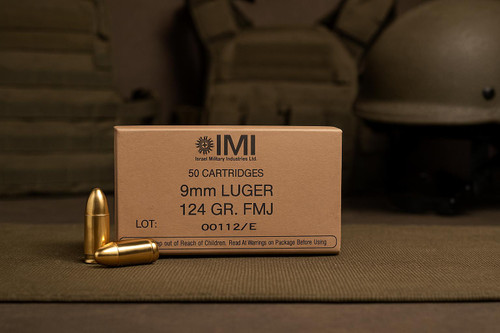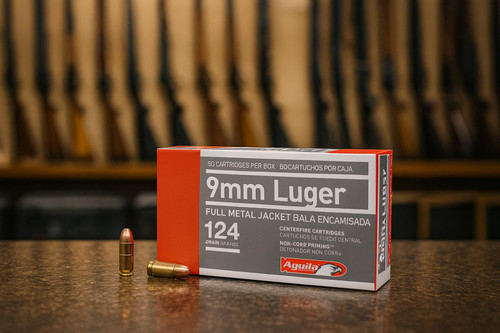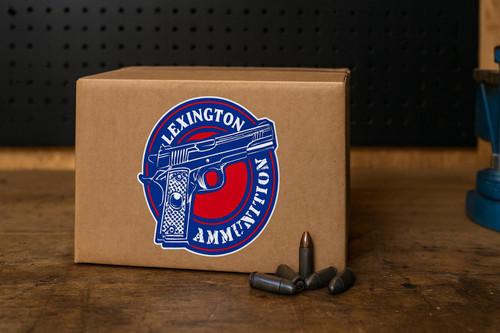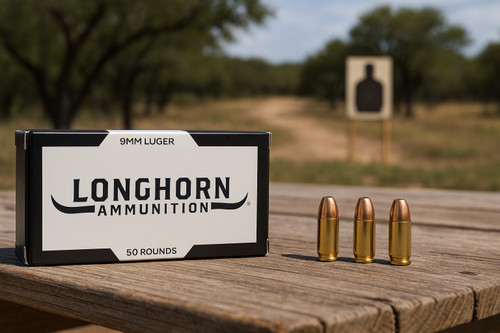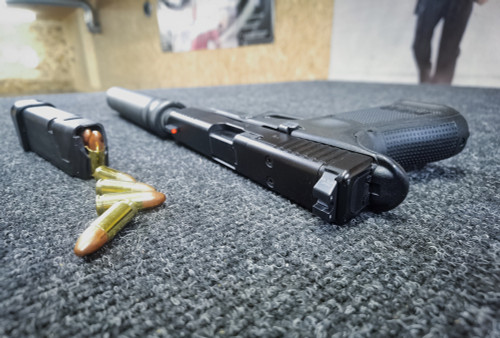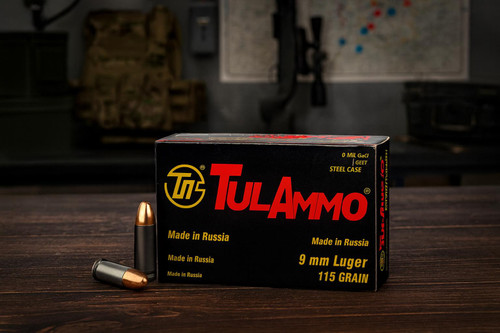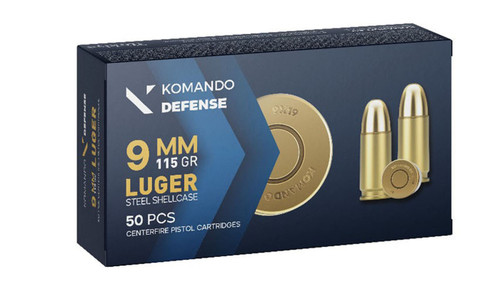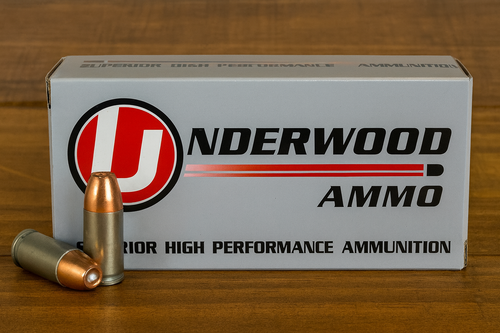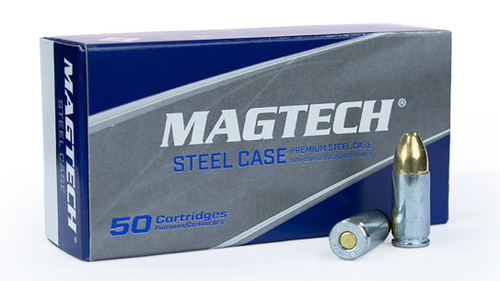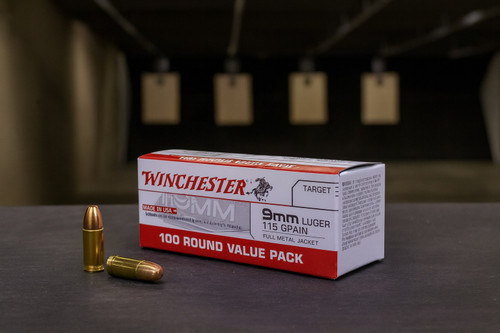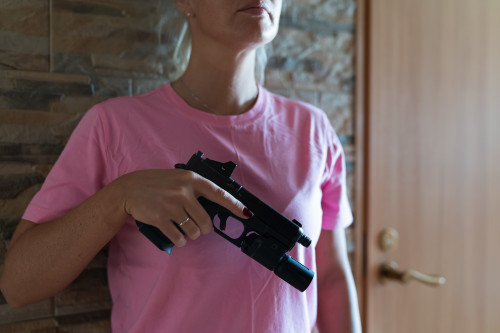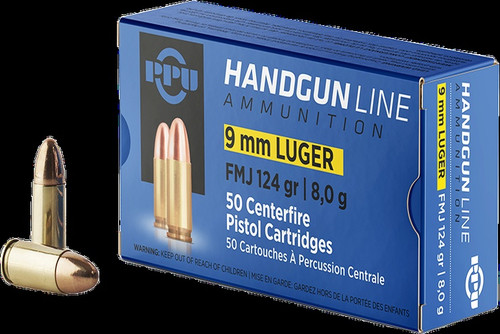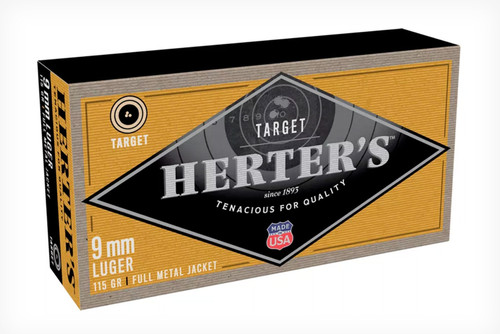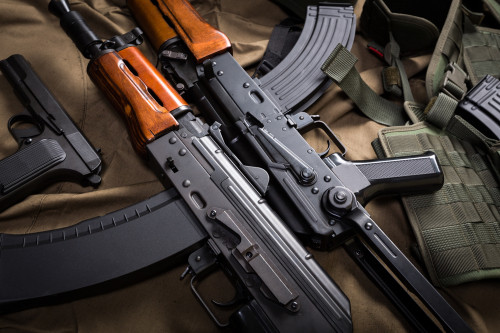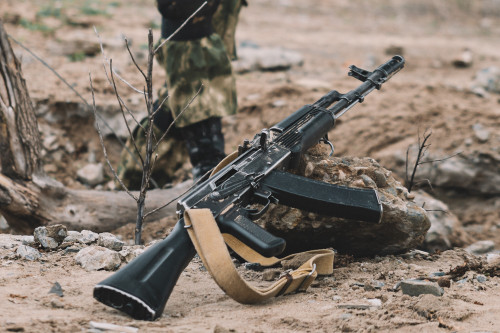When properly stored, 9mm ammunition can remain reliable for decades, but like all manufactured products, it isn’t immune to the effects of time, moisture, and environmental conditions. Whether you're a new gun owner, a concealed carry permit holder, or a seasoned firearms enthusiast, it's essential to understand how and why ammunition can degrade over time. A failure to recognize signs of aging or improper storage could result in misfires, squib loads, or unsafe pressure levels that can damage your firearm or put you at risk.
As one of the most widely used handgun calibers in the world, 9mm ammo is often bought in bulk for training, self-defense, or emergency preparedness. But how long will it stay usable? Can you trust that old box in the back of your safe, or the surplus rounds you picked up at a gun show?
In this guide, we’ll explore the history and design of cartridge ammunition, how to tell when ammo has “gone bad,” and most importantly, how to extend the shelf life of your 9mm rounds. Whether you're building a long-term storage plan or just want to make sure your carry ammo is still dependable, this article will give you the information you need to keep your gear, and yourself, ready.

Federal Premium 9mm 147gr JHP
$28.99
at Pro Armory
Prices accurate at time of writing
History of Cased/Cartridge Ammunition
Before the invention of cartridge-based ammunition, early firearms relied on separate components, powder, ball and primer, loaded individually. This process was time consuming and unreliable. In the early 1800s, innovators began experimenting with self-contained cartridges. By the mid-19th century, the modern metallic cartridge was born, combining bullet, powder, primer, and casing into a single, efficient unit.
The 9mm Luger cartridge, also known as 9x19mm Parabellum, was developed in 1901 by Georg Luger. It became one of the most widely used military and civilian handgun rounds worldwide. The advent of the self-contained cartridge revolutionized firearms, offering consistency, reliability, and ease of use. Qualities of which are still valued today.
What is Cartridge Ammunition?
A standard 9mm cartridge consists of four key components:
- Bullet: The projectile that is expelled from the barrel.
- Case: Typically made of brass, steel, or aluminum, it holds all the components together.
- Propellant (Gunpowder): Provides the explosive force that propels the bullet.
- Primer: A small ignition compound at the base of the case that ignites the powder when struck.
Each of these components can degrade under the wrong conditions, affecting the performance and safety of the ammunition.
How Does Cartridge Ammo "Go Bad"?
Ammunition doesn't spoil like food, but it can degrade and become unreliable or dangerous to shoot. The most common causes of ammo going "bad" include:
- Moisture/Humidity: Water or moisture can corrode the casing and compromise the powder or primer.
- Heat and Temperature Fluctuations: Extreme heat can cause powder to break down or pressure changes in storage conditions, altering ballistics.
- Corrosion: Rust or green corrosion on the casing or primer can signal chemical breakdown, especially in non-sealed ammo.
- Contamination: Exposure to oil, solvents, or chemicals can render rounds ineffective.
When any of these factors impact the cartridge components, the result can be misfires, squibs, or catastrophic failures.
Average Shelf Life of 9mm Ammo (Both in Weather-Tight Containers and Not)
- Properly Stored (Weather-Tight Containers): 9mm ammo can last 25–50+ years if stored in a cool, dry, dark environment, such as a sealed ammo can with desiccant packs.
- Improperly Stored (Open to Air/Humidity): Ammo may start to degrade in as little as 5–10 years, especially in areas with high humidity, temperature swings, or exposure to UV light.

Sig Sauer Elite Performance V-Crown Ammunition 9mm 115gr JHP- 50 Rounds
$39.99
at Pro Armory
Prices accurate at time of writing
Modern ammunition is surprisingly durable, but storage conditions make all the difference in how long it remains reliable.
Determining if Your Ammo is Unsafe or Too Old
Here are signs that 9mm ammunition may be too old or unsafe to fire:
- Corroded Casings: Look for green, white, or red corrosion, which can indicate chemical breakdown or exposure to moisture.
- Cracked or Dented Casings: Physical damage to the casing may prevent the round from chambering correctly or firing safely.
- Discoloration or Oily Residue: Unusual residue may indicate contamination by solvents or degraded primer compound.
- No Markings: If there's no headstamp or label, it’s hard to verify the age or type of ammo, treat it with caution.
- Unusual Odors: Chemical smells may indicate deteriorating powder.
If in doubt, consult a gunsmith or dispose of the ammunition at a hazardous waste facility or local law enforcement collection program.
Things You Can Do to Extend the Life of Your 9mm Ammo
- Use Airtight Ammo Cans: Store your ammunition in steel or plastic cans with rubber gaskets for a moisture-proof seal.
- Include Desiccant Packs: These help absorb residual moisture inside containers.
- Avoid Excessive Heat: Keep ammo away from direct sunlight, attics, or hot vehicles. Ideal storage temperature is below 75°F.
- Control Humidity: Use dehumidifiers in storage rooms or safes.
- Store Off the Ground: Use shelves to avoid contact with potentially damp floors.
- Rotate Inventory: Use older ammunition first (FIFO: First In, First Out).
Proper storage habits not only preserve ammo but also ensure it performs when needed.

50 Cal Ammo Can
$17.99
at Pro Armory
Prices accurate at time of writing
Final Thoughts
So, does 9mm ammo go bad? Yes, it absolutely can, but not quickly and not without a little help from poor storage practices. Ammunition is remarkably durable when kept in the right environment. Factors like moisture, heat, and air exposure can accelerate the degradation of both the primer and powder, but when properly sealed and stored in climate-controlled, airtight containers, 9mm rounds can remain safe and effective for 25 years or more.
Whether you're stocking up for range training, maintaining a home defense loadout, or preparing for long-term emergencies, understanding how 9mm ammunition ages is crucial. Using degraded ammo can lead to reliability issues, dangerous malfunctions, or damage to your firearm, and none of those are risks you want to take when it counts.
Being proactive with your ammo storage, using sealed ammo cans, desiccant packs, and keeping rounds in cool, dry locations, can mean the difference between a clean shot and a critical failure. Ammunition isn't just another consumable; it's a key part of your personal safety strategy and deserves the same level of care and attention as your firearm itself.
Ultimately, the question isn’t just does ammo go bad, but “how can I keep it from doing so?” With the right knowledge and a few simple steps, you can ensure your 9mm ammo remains ready, reliable, and safe for years to come.
Frequently Asked Questions
1. Can I shoot 30-year-old 9mm ammo?
Yes, if it’s been stored properly. Many shooters have successfully fired decades-old ammo. Check for corrosion or damage before use.
2. How should I dispose of old or questionable ammo?
Contact your local law enforcement or hazardous waste disposal site. Never throw ammunition in the trash.
3. Does ammo expire like medicine?
Not exactly. Ammo doesn’t have a set expiration date but will degrade based on environmental conditions.
4. Will storing ammo in a garage ruin it?
It depends. Garages often experience temperature and humidity swings. Unless climate-controlled and sealed, it's not ideal.
5. Can you use WD-40 or oil to preserve ammo?
No. Oils and solvents can seep into the cartridge and degrade the primer or powder. Keep ammo dry and oil-free.
6. Is military surplus 9mm ammo still safe?
Often yes, especially if stored in sealed containers. However, inspect each round for signs of corrosion or damage.



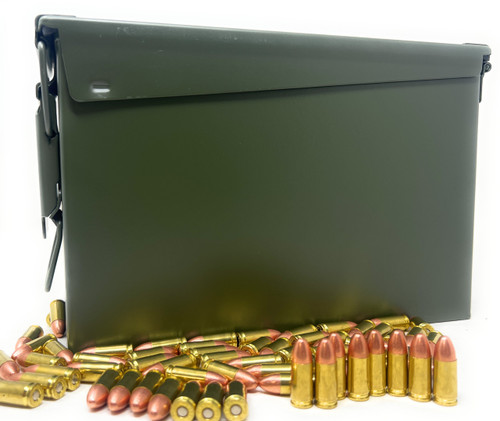
 Pro Armory Editorial Team
Pro Armory Editorial Team
